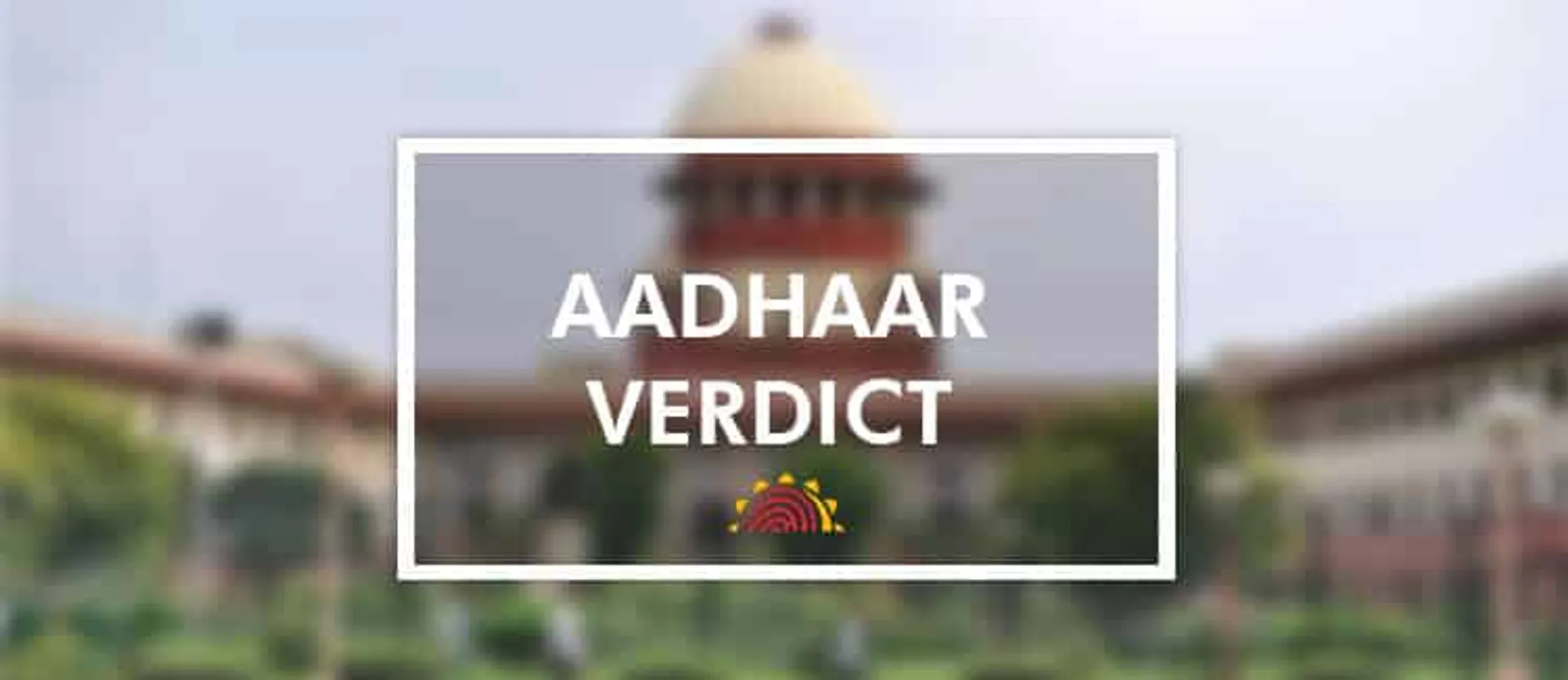The Aadhaar Act, 2016 was enacted with a purpose to provide certain services and benefits by generating a unique identification number. The aim was to plug the leakage of money spent by Government on various social schemes so that benefits reach the intended beneficiary.
In a recent judgement delivered on 26.09.2018, deciding 31 petitions, Hon’ble Supreme Court of India has upheld the Constitutional validity of the Aadhaar Act, 2016, by a majority of 4:1. The purpose of the Aadhaar is said to be legitimate. It does not violate Right to Privacy.
Hon’ble Court has observed that Aadhaar gives dignity to the marginalised section of the society which outweighs the harm. It is the card of empowerment. The information contained in the card is unique.
Also Read: Aadhaar Not Required for Bank Accounts, Phones for Now: Supreme Court
SC has addressed the apprehensions expressed by the petitioners who feared that the data collected by the Government under the act could be leaked and misused.
- Hon’ble Court has directed the Government and the UIDAI to put in place a robust data protection regime to prevent any misuse.
- The State is not allowed to intrude into the private autonomy of the person under the garb of providing economic benefits or retrieving information for any social welfare scheme.
- The government has no right to possess unrestricted and unguided powers in the pretext of good governance or targeted delivery of benefits.
- The State cannot be allowed to perform any act which is unjustified and unfair, violating the fundamental rights of the citizens.
Table of Contents
As per the recent Aadhaar verdict,
Aadhaar will now not be mandatory for:
- getting new mobile connections
- the opening of bank accounts
- getting admission to schools
- to appear for University Grants Commission (UGC), Central Board of Secondary Education (CBSE), National Eligibility cum Entrance Test (NEET) exams.
- Private entities cannot seek Aadhaar data (section 57 of the Act )
- The benefit of any scheme cannot be denied to a child in the absence of Aadhaar Card
Read: Should we link Aadhaar card with the PAN card?
Aadhaar will also be essential for :
- linkage with Permanent account number (PAN)
- for filing Income tax returns (ITR).
Recommendations of the Apex Court :
- “ Authentication records “ ( Section 2 (d) of the Act) cannot be retained beyond six months (at present it is a five year period)
- Suitable measures to be taken by Government to ensure that Aadhaar is not issued to illegal immigrants. (section 2 (b) of the Act)
- The information about an individual cannot be released without hearing him
- Disclosure of any information in the interest of national security has to be adequately guarded. (section 33(2) of the Act )
- Any individual or a victim (section 47 of the Act) can also file a complaint against any offence under the Act (at present only authorised officer can do it)
Observations of the Apex Court :
- Collection of data and its storage does not violate any fundamental right.
- Benefits and services should be some welfare schemes.
- Aadhaar does not tend to create a Surveillance State.
- Aadhaar Act rightly passed as Money Bill.
- Sufficient safeguards are there to protect the data collected.
Read: Aadhar Card for Benami Transactions Prohibition
This recent verdict has vindicated the stand of the Government to the extent that the Aadhaar Card scheme is constitutionally valid and is required to ensure that any expenditure by Government on welfare schemes is used for the intended purposes only. It has also allayed the worries of the common man by giving suitable directions to the government to ensure the protection of the unique information contained in the Aadhaar card and to prevent any possible misuse of the data.

